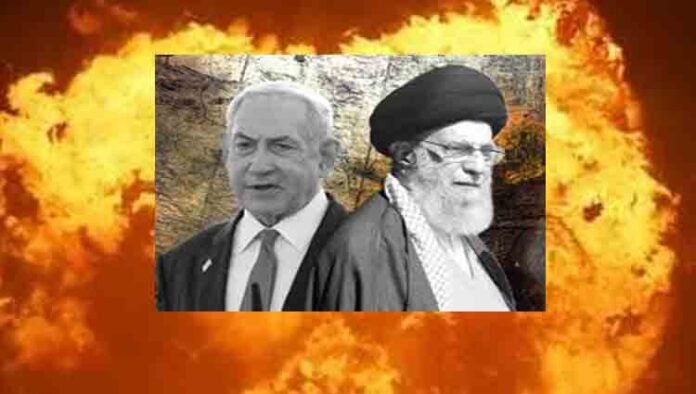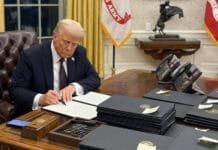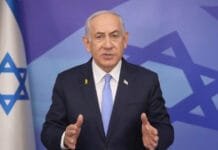Brief Summary : Iran’s declaration of war against Israel has set the Middle East on edge. Following the death of Hamas chief Ismail Haniyya, Iran’s Supreme Leader Khamenei has mobilized for a direct assault. With allies like Hezbollah, Hamas, and the Houthis, Tehran’s stance could reshape regional alliances and conflict dynamics.
Introduction
INVC NEWS
Tehran : In the latest chapter of Middle Eastern turmoil, tensions have escalated to unprecedented heights. Following the assassination of Hamas chief Ismail Haniyya during his visit to Tehran for the inauguration of Iran’s new President Masoud Pezeshkian, the region is poised on the brink of a major conflict. Iran’s Supreme Leader, Ali Khamenei, has declared a direct war against Israel, and it appears that Tehran is not alone in this struggle. The stage is set for a complex and multifaceted war involving Iran’s most significant allies: Hezbollah, Hamas, and the Houthis.
This article delves into the intricate web of alliances and military readiness in the region, examining the potential for an expansive conflict that could reshape the geopolitical landscape. Buckle up as we explore the players, the stakes, and the possible outcomes of this looming war.
The Catalyst: Ismail Haniyya’s Death and Its Aftermath
The Arrival and Tragic End
Ismail Haniyya, the leader of Hamas, made a high-profile visit to Tehran, attending the swearing-in ceremony of President Masoud Pezeshkian. This visit was meant to solidify alliances and discuss strategies against Israel. However, the following day, Haniyya was killed in an airstrike, a devastating blow that ignited a furious response from Iran. The loss of such a key figure has only heightened the stakes and intensified Iran’s resolve to retaliate.
Iran’s Furious Response
Iran’s reaction to Haniyya’s death was swift and severe. Supreme Leader Khamenei, known for his hardline stance against Israel, wasted no time in mobilizing military forces. His directive was clear: launch a direct attack on Israel. The anger and grief felt in Tehran have been translated into aggressive military strategies, setting the stage for what could become a full-scale regional conflict.
The Powerhouses: Iran and Its Military Might
The Islamic Revolutionary Guard Corps (IRGC)
Iran boasts one of the most formidable military organizations in the world: the Islamic Revolutionary Guard Corps (IRGC). This elite force, with its extensive arsenal and significant strategic capabilities, is central to Iran’s military strategy. The IRGC’s expertise in unconventional warfare and its ability to project power beyond Iran’s borders make it a crucial player in the impending conflict with Israel.
Support from Regional Allies
Iran’s military capabilities are not solely limited to its own forces. The country has cultivated strong alliances with several armed groups across the Middle East. Here’s a closer look at these key players:
- Hezbollah in Lebanon: This Shia militant group has been a long-standing ally of Iran. Funded and trained by Tehran, Hezbollah is expected to play a pivotal role in any conflict against Israel. The group’s considerable military prowess and experience in guerrilla warfare make it a significant asset in the war.
- Hamas in Gaza: Although Hamas has its own agenda, its ties with Iran have been crucial in providing military support and strategic guidance. With Haniyya’s death, Hamas’s resolve against Israel might be further galvanized, intensifying the conflict.
- Houthi Rebels in Yemen: The Houthis, who have been active in the Red Sea region, are another significant Iranian ally. Their involvement in the conflict could open new fronts and complicate Israel’s strategic calculations.
The Geopolitical Landscape: Iran’s Regional Influence
The Iran-Backed Neighbors
Israel shares its borders with several countries, many of which are influenced or directly supported by Iran. Here’s a rundown of how these neighbors might align in the event of a direct confrontation:
- Syria: Iran has a strong military presence in Syria, with substantial influence over various Shia factions. This presence has already led to direct confrontations with Israel in the past, and the situation is likely to escalate further.
- Lebanon: Lebanon’s Hezbollah, funded and trained by Iran, stands as a formidable force in the conflict. Hezbollah’s continuous support for Hamas and its readiness for military engagement make Lebanon a critical battleground.
- Yemen: The Houthis, with their Iranian backing, control a significant portion of Yemen. Their strategic location near the Red Sea and their demonstrated military capabilities add another layer to Iran’s conflict with Israel.
The Broader Implications
The involvement of these countries and groups highlights Iran’s strategic depth and its ability to mobilize a coalition against Israel. With military bases and influence spread across the region, Iran’s reach extends far beyond its own borders.
Potential Scenarios: What Lies Ahead?
Escalation to Full-Scale War
If the conflict escalates, we could witness a full-scale war involving multiple fronts. The combined forces of Iran, Hezbollah, Hamas, and the Houthis could overwhelm Israeli defenses and spread the conflict across the region. Such an outcome would not only destabilize the Middle East but also impact global geopolitical dynamics.
Diplomatic Efforts and Interventions
There might be attempts at diplomatic intervention to de-escalate the situation. The international community, including major powers and organizations, might step in to mediate and prevent a larger-scale war. However, given the entrenched positions of the parties involved, such efforts might face significant challenges.
The Role of Israel’s Allies
Israel’s allies, including the United States and European nations, could play a crucial role in countering the Iranian-led coalition. Support in terms of military aid, intelligence, and diplomatic backing might be pivotal in shaping the outcome of the conflict.
The impending conflict between Iran and Israel, fueled by the death of Hamas chief Ismail Haniyya and Iran’s subsequent declaration of war, sets the stage for a high-stakes geopolitical showdown. With powerful allies like Hezbollah, Hamas, and the Houthis, Iran is gearing up for a major confrontation. The intricate web of regional alliances and military readiness suggests that this conflict could have far-reaching implications, both for the Middle East and the wider world. As the situation unfolds, the international community will be closely watching, hoping for a resolution that avoids further escalation and fosters stability in the region.



















